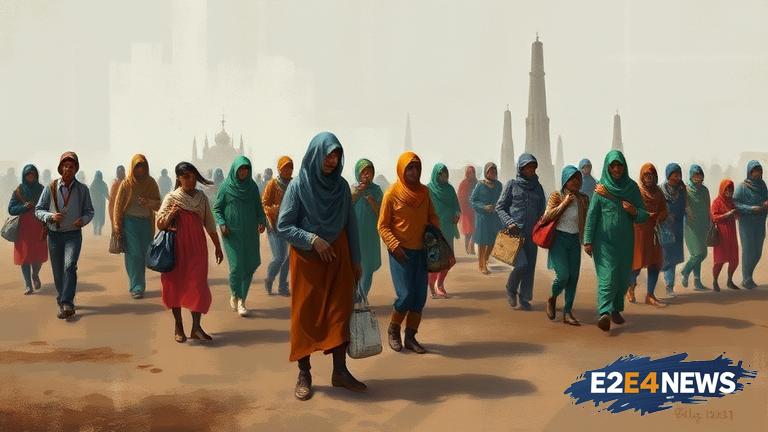Human transnational trafficking has become a significant concern globally, with thousands of people being trafficked across borders every year. Dr. Lartey, an expert in the field, has highlighted the importance of addressing this issue, which affects not only the victims but also their families and communities. The problem is complex, involving various forms of exploitation, including forced labor, sex trafficking, and organ harvesting. According to Dr. Lartey, the root causes of human transnational trafficking include poverty, lack of education, and unemployment, which make individuals vulnerable to false promises of better lives abroad. The traffickers often use deceptive tactics, such as fake job offers or promises of marriage, to lure their victims into situations of exploitation. Once trafficked, victims face numerous challenges, including physical and emotional abuse, lack of access to basic necessities, and limited freedom. The impact of human transnational trafficking is far-reaching, affecting not only the individuals involved but also the social and economic fabric of the countries concerned. Dr. Lartey emphasizes the need for a multi-faceted approach to combat human transnational trafficking, involving governments, international organizations, and civil society. This includes strengthening laws and regulations, improving border control, and providing support to victims. Additionally, raising awareness about the issue and promoting education and economic empowerment can help prevent human transnational trafficking. The Ghanaian government has taken steps to address the issue, including the establishment of the Human Trafficking Secretariat and the passage of the Human Trafficking Act. However, more needs to be done to address the root causes of the problem and to provide adequate support to victims. Dr. Lartey’s call to action highlights the urgency of the situation and the need for collective efforts to combat human transnational trafficking. The international community must work together to share best practices, provide technical assistance, and support countries in their efforts to prevent and respond to human transnational trafficking. Furthermore, it is essential to address the demand side of human transnational trafficking, including the demand for cheap labor and sex services. This requires a shift in societal attitudes and behaviors, as well as the implementation of policies and laws that prevent exploitation. In conclusion, human transnational trafficking is a complex and growing concern that requires a comprehensive and coordinated response. Dr. Lartey’s emphasis on the need to address this issue is a call to action for governments, international organizations, and civil society to work together to prevent and respond to human transnational trafficking. The time to act is now, and collective efforts are necessary to protect the rights and dignity of victims and to prevent further exploitation. The consequences of inaction will be severe, and it is essential to prioritize the prevention and response to human transnational trafficking. By working together, we can make a difference and create a safer and more just world for all. The fight against human transnational trafficking requires perseverance, dedication, and a commitment to upholding human rights. It is a challenge that we must face head-on, and Dr. Lartey’s call to action is a reminder of the importance of this issue. As we move forward, it is essential to prioritize the needs of victims and to provide them with the support and services they require. This includes access to counseling, medical care, and economic empowerment opportunities. By prioritizing the needs of victims, we can help them to rebuild their lives and to regain their dignity. Ultimately, the fight against human transnational trafficking is a fight for human rights and dignity, and it requires a collective effort to prevent and respond to this complex issue.





